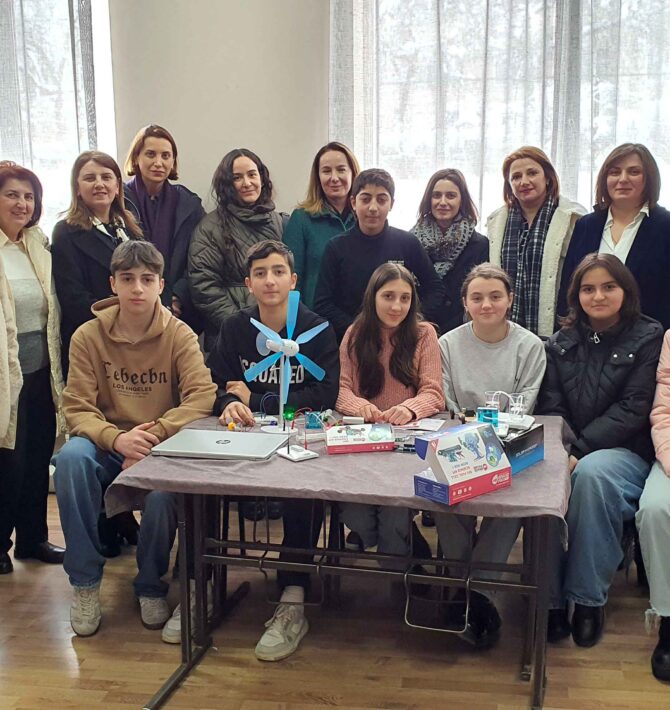STEM kits and 3D printers to be provided to 22 schools in Kakheti and Imereti Regions within the Framework of the STEM-UPD Project
On February 21, I2Q Project representatives visited Iakob Gogebashvili Telavi State University (TESAU) to review the progress of the STEM concept for University Educational Programs Development (STEM-UPD). This project is funded under the Competitive Innovation Fund (CIF) grant competition. The project is being implemented by a consortium that includes ATSU, Stimiti LLC, and the Copernicus Science Center, alongside TESAU.
The STEM concepts for university educational program development are innovative and aim to strengthen the STEM disciplines while developing creative approaches in the curriculum for both current and future teachers at the Faculty of Education Sciences (TESAU) and the Faculty of Pedagogy (Akaki Tsereteli State University – ATSU). This groundbreaking initiative addresses a vital gap in Georgia’s higher education by raising STEM awareness among educators.
Important activities are being carried out within the framework of the Significant activities are currently underway as part of the STEM-UPD project. Laboratories at TESAU and ATSU will be equipped with essential resources in chemistry, physics, biology, geography, mathematics, and engineering robotics. These resources will support the teaching of natural sciences and facilitate the retraining of existing and future teachers.
Within the framework of the project, a network of STEM clubs has been established. Twenty-two schools in the Kakheti and Imereti regions will receive STEM kits and 3D printers, paving the way for the introduction of STEM education. The new network will be coordinated by laboratories set up at the universities. Representatives from the I2Q project visited STEM clubs at Telavi schools No. 7 and 9, which are part of this network, where students are actively using the STEM kits.
Personnel of universities and teachers from selected schools have been retrained to manage the STEM laboratories set up in the schools. The development of STEM methodological guides and training modules is also planned. Furthermore, articles related to the project will be published in reputable journals, and a conference will be held. It is important to note that the newly developed training courses will be integrated into the program during the reaccreditation process. Once the project concludes, the network of STEM laboratories will continue to operate.
Additionally, the company “STEMIT” is supporting the preparation and implementation of methodologies for STEM resources and learning scenarios, while the Copernicus Science Center in Warsaw is contributing to academic training and the establishment of the STEM clubs network.
A working group from the consortium recently visited the Copernicus Science Center in Warsaw to gather materials and train staff on STEM methodologies. They gained insights into Polish experiences regarding laboratory equipment, the creation of interactive resources, methodological approaches to implementing STEM projects in formal education, and the principles behind STEM clubs.
News regarding the project is consistently published on the website.







